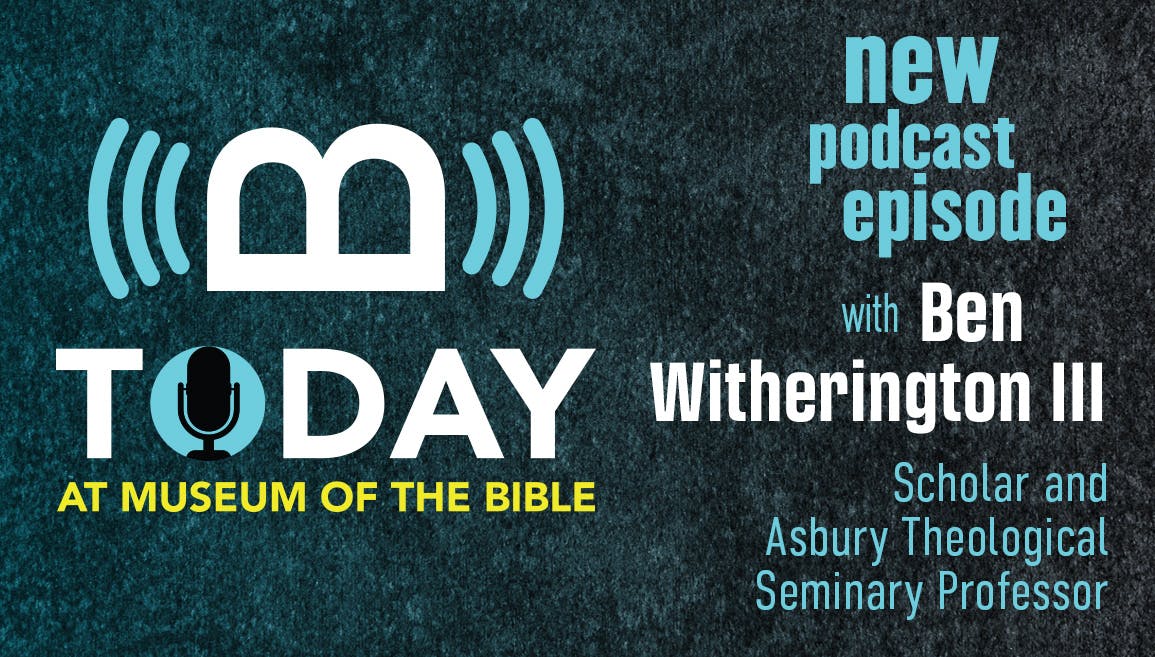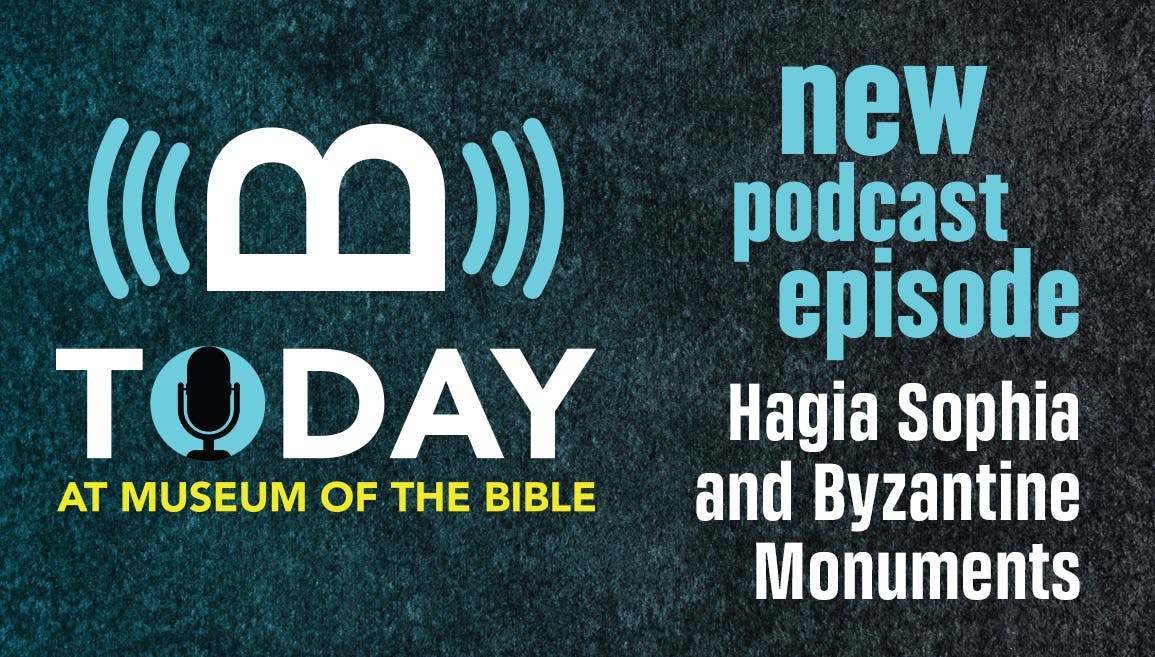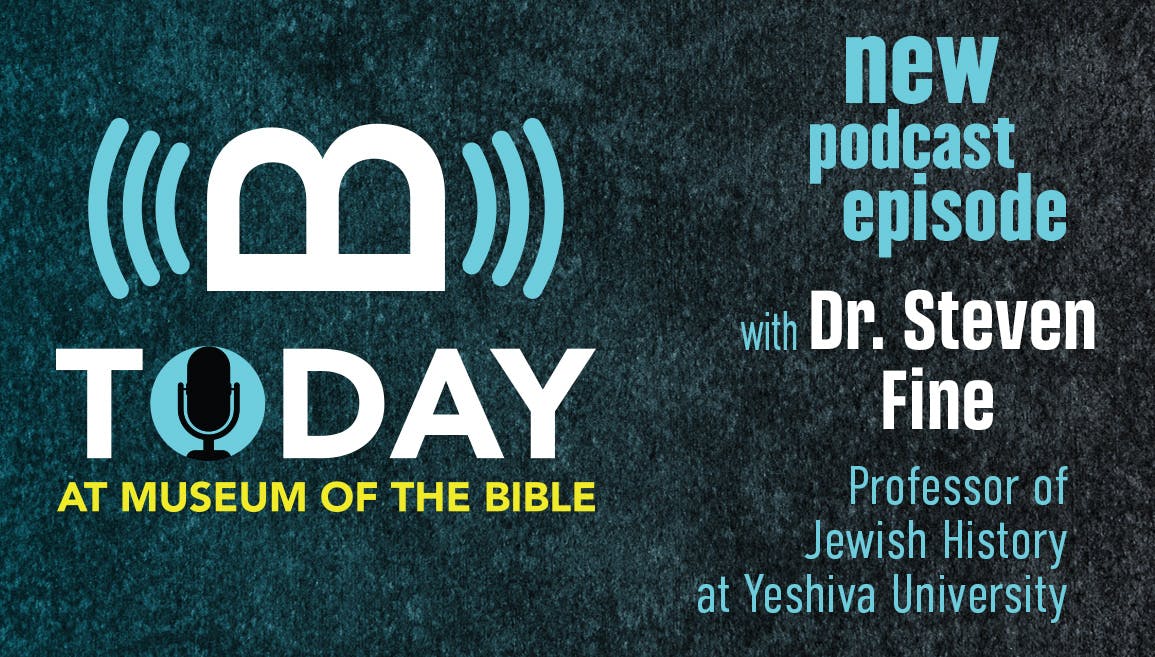From the Podcast: New Testament Discoveries with Dr. Ben Witherington

On our podcast, Charlotte Clay, director of marketing and communications, and Dr. Jeff Kloha, chief curatorial officer, interviewed Dr. Ben Witherington, Amos Professor of New Testament for Doctoral Studies at Asbury Theological Seminary and Professor Emeritus at St. Andrews University in Scotland.
The following interview has been edited for clarity and space. To get the full interview, listen using the video player above or listen to the episode on our podcast, Today at Museum of the Bible, or on , or on our YouTube channel.
Charlotte: Dr. Witherington, thank you so much for being here. Now, you made an interesting discovery while examining an inscription during a visit to Turkey. Can you tell us about that?
Ben: Sure. My friend Mark Wilson and I were in the town of Yalvaç, the modern city which is right adjacent to the Pisidian Antioch biblical site. And [there’s] a tiny little museum. There's all this stuff out in the courtyard and mostly inscription stones.
So we come to this inscription stone that says, “L. Sergius Paulus.” But actually, it says “Paulii,” as in father and son or several generations of it. And that rings an immediate bell because this is the governor of Syria referred to in Acts 13. I said to the curator of the museum, “Would you please put this in the museum? Some important place, because it's the only object you have that's actually of biblical importance from that period.” And so he was excited and he brought it into the museum.
So, here's the interesting thing about that. It cannot be an accident that Paul, on his first missionary journey, is taken to Cyprus by Barnabas, and they go to Salamis, and then they walk across the southern coast of Cyprus, and then they get to Paphos, which is where L. Sergius Paulus is, who is very interested in Eastern religions, and has been mesmerized by a local magician named Elymas. Paul immediately knows this guy is not good for the governor. There's the story about him blinding Elymas, who's religiously misleading the governor. And the governor goes, “I'd better listen to Paul.” So, he listens to the testimony about the gospel.
If you do enough research on L. Sergius Paulus, you learn that he was a person who was interested not only in religion, but natural history. He wrote a textbook on natural history. He was good friends with Pliny the Elder, who wrote the most famous textbook on natural history from that whole period. And if he has read Pliny the Elder, then this is why he’s interested in magicians, which are apparently fairly common in Cyprus as religious people.
In other words, the story now makes better sense as a result of this inscription.
This excerpt is from an episode of Today at Museum of the Bible. Listen to the whole interview on Spotify, Google Podcasts, Apple Podcasts, iHeart Radio, YouTube, or wherever you get your podcasts.


